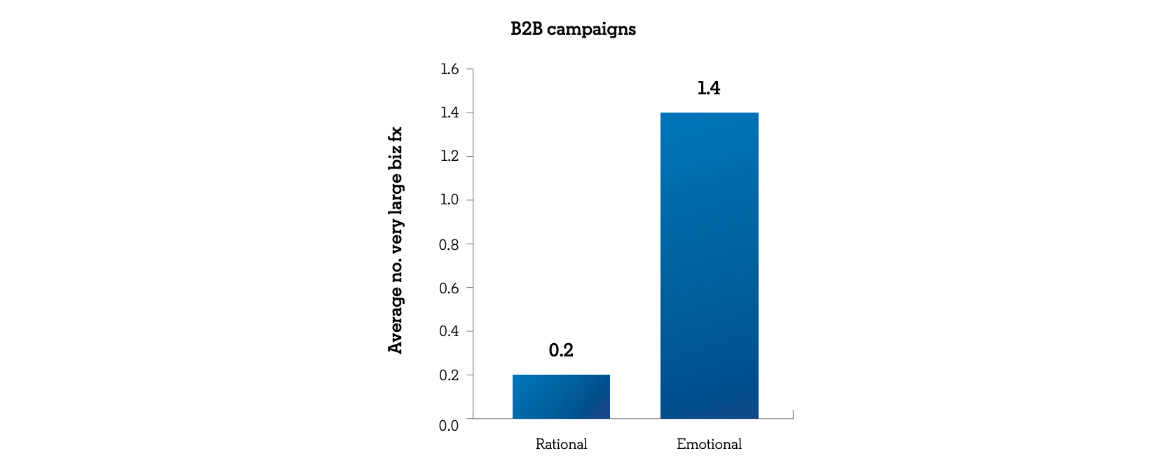Discovering the Human Truth in Your Global B2B Marketing Campaign

Share this story
Ignite USA recently wrapped its two-continent B2B marketing conference. The agenda featured many insightful subject matter experts offering thoughts and strategies regarding current challenges in B2B marketing and future thinking for the B2B space. At both the U.S. and U.K. Ignite conferences I joined my colleague from Bray Leino, Sam Crocker, to discuss the future of global messaging in the B2B world. We believe this is an area of evolution in the B2B space that will be at the forefront of global marketing strategy in the years to come.
The challenge for global marketers is to create messages that will resonate globally. We often see the mentality that the agency closest to the client headquarters is considered the lead agency. Global B2B companies assume if campaigns worked in the lead market previously, it’ll work elsewhere, and they decide to have the campaign developed locally and then transition the campaign to other agencies across the globe. This presents myriad problems, including adoption by regional marketing teams, adaptations by regional agencies, etc. To operate on a global scale, you need agencies working together during the conceptualization phase and challenging each other to construct messaging that’s going to work globally before getting down to execution. This requires you to be intentional with your agency ecosystem. Agencies need to be clear on their various roles and responsibilities to work with each other, not alongside each other. Sam further elaborated that this relationship among the agencies will lead to the sharing of concepts and work that will resonate in various markets.
So much time is spent trying to decipher how customers buy, instead of why they are buying.
Assuming you have the right agency ecosystem and a process that facilitates sharing, you need to create work that can be localized and delivered globally. The nuances in things like humor, idioms and culture often create barriers. The key to solving this challenge is ensuring campaigns are based on a human truth. So much time is spent trying to decipher how customers buy, instead of why they are buying; what is their motivation? Sam explained, “Developing personas and customer research is very valuable, but uncovering a human truth that resonates across buyers and buying groups leads to great creative ideas.”
Those ideas can transcend cultures, countries and regions far more effectively than translation. Admittedly, the B2C world is a little more mature in their understanding of the power of the human truth. I was reminded of General Motors Company (GMC) discovering their human truth that customers want to own the best tools to do their jobs; it makes customers feel more confident and professional. GMC combined that truth with research around the features and benefits of buying a GMC vehicle to come up with the tagline “professional grade” — which has been the idea behind their work for over a decade.
In B2B markets, emotional strategies drive seven times more business effects than rational campaigns, according to the IPA Databank. I saw the benefits of focusing on the human truth after working with one of our global clients. We conducted a tremendous amount of research, including buyer journeys and personas. Our client was previously focusing on reliability and the product benefits. But the game changer for this campaign was searching for what was a common human truth across all the interviews and studies. We found that buyers chose our client’s product because they felt it would make them look better at their jobs. This insight led to an idea that is big enough to work across the globe and allows for adaptation that is richer than translation alone.

After you have your message and are ready to share it with the world, the next obstacle for global B2B organizations is developing consistency. How can you develop an effective messaging campaign that is consistent across all cultures with vast amounts of content? B2B marketers need to be intentional with their standards and toolkits. Early on, you might need to be rigid in your approach. But as you gain brand awareness, you can become more flexible.
When Bray Leino and MX get ready to roll out a global message, we often discuss the maturity of the brand. If it is a new brand, product, service or solution, then it likely makes sense to have a rigorous approach to consistency to ensure the message is analogous across all regions. Over time, as that brand matures, you can loosen the reins, let the human truth guide you, and execute a campaign that incorporates the flavor of the local markets.

Of course, ensuring consistency goes hand in hand with the challenge of personalization at scale. The digital self-service market is here to stay. And demand is high for the creation of personalized digital experiences that resonate with buyers. How can B2B companies meet this growing demand for digital and personalized content?
For us, we believe the focus should be on relevance over personalization. B2B marketers implementing new tools and technologies can focus on all the ways to personalize a message instead of understanding intent signals and delivering content, tools and messages that are relevant and move the buyer through the funnel. An email that has a potential buyer’s name in it doesn’t demonstrate personalization. You need to show you understand what your buyer needs for their business and deliver a message that is relevant to that demand. Of course, organizations need to understand how to fully utilize their technology to help them better understand the relevance to their customers’ needs, so we are not diminishing that as a course of action.
These agencies need to speak to each other without ego so you can have an open dialogue about the campaign.
All this thinking is sometimes challenged by the disbelief that agencies can work together in harmony to identify human truths, craft ideas based on this truth, and leverage tools and tech to create relevance. For both Sam and me, it comes down to structure, visibility and governance. For structure, you need to get the right agencies at the table. These agencies need to speak to each other without ego so you can have an open dialogue about the work. Then, you need to create collaboration and alignment through a defined development process.
For visibility across agencies, Bray Leino and MX have been successful in our communications by utilizing project management tools that allow us to share work globally just as we would in our own offices. We also are very intentional in our communication cadence among agencies and with our clients. We implement quarterly business reviews, and we ask clients to survey us on general satisfaction to find areas of improvement in addition to surveying them on how to better work with the agency. As for governance, you need to make sure there are leaders at the table that can govern the agency model. You need someone that sits at the top and checks in to say, “Are we all aligned and working toward one common goal?”
So many great actionable takeaways were gathered during our conversations with senior-level B2B marketers at both the U.S. and U.K. Ignite conferences. I’m grateful for their participation. My hope is that B2B marketers across all levels of maturity will construct campaigns inspired by a human truth. Once that human truth is found, allow it to guide your organization’s message while you focus on establishing transparent communication and alignment across your agencies. This will help avoid simply translating the message and losing the human truth that is core to your brand awareness.

